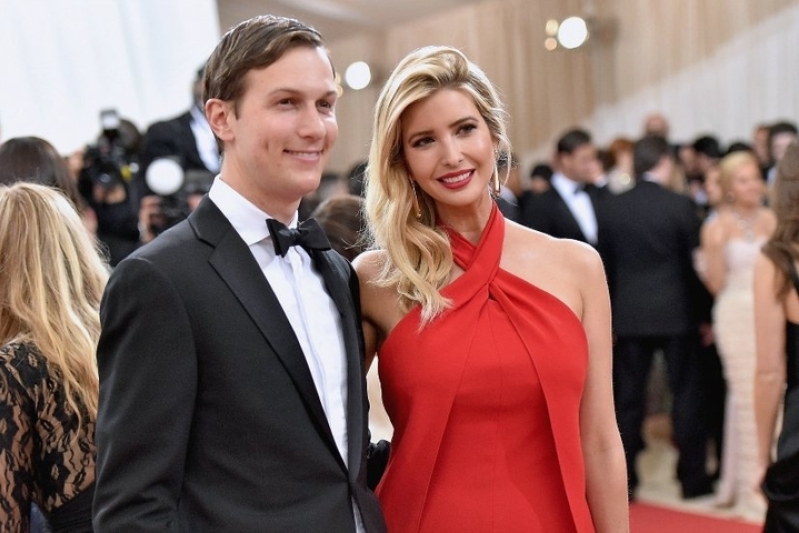
A sobering interview with the late grandmother of Donald Trump's son-in-law Jared Kushner has resurfaced in which she discusses the pain she felt over America's refusal to accept Jews fleeing the Holocaust.
According to the Jerusalem Post, a transcript of the interview with Rae Kushner, taped in 1982 and published in the US Holocaust Memorial Museum in Washington, was rediscovered shortly after Trump issued an executive order temporarily banning Syrian refugees and immigrants from seven Muslim-majority countries. The order sparked major protests at airports around the nation and drew widespread condemnation from Jewish groups.
In the video, Rae Kushner, who passed away in 2004, says she was born in 1923 in Novogrudok, a city then in Poland and occupied first by the Soviet Union and then the Nazis, who turned it into a Jewish ghetto.
In 1941, Kushner was one of 50 girls taken by the Germans to the town square in Novogrudok and asked to wash blood from the stones where the Nazis had just executed a number of people.
"The German shot them as [a band] was playing," she said. "We put the dead bodies on a wagon. The heads of the people were hanging off the back of the wagon."
"A few Jews, friends of my father's who had stores, left everything and went to Palestine. [Even before the war] they said to my father and mother, 'Sell everything and run,' " Kushner said.
"But we had a problem. We didn't know where to run. There was no Israel like there is today. There was no place that you could legally go to. It was very hard to get a visa to the United States; it would take years and years.
"For a family with small kids to pick themselves up and go it was very hard. But a few families left to Palestine and they stayed alive. We felt the anti semitism. We felt something was coming, but we couldn't help ourselves.
"The doors of the world were closed to us. You know how hard it was to get to Israel? Boys and girls used to sit in a camp for three or four years before they could go to Palestine. To go to America was harder. You sent your papers and you waited for years before you could get a visa."
Eventually, she managed to escape the ghetto through a tunnel dug by Jews and lived in the woods for nine months with her sister and father. Her brother escaped through the tunnel, but they were never able to find him. They later smuggled themselves into several countries - the former Czechoslovakia, Austria, Hungary - ending up in a displaced persons camp in Italy.
She recalled how, walking on foot in the middle of the night, they crossed the border again to Italy. They lived in Italy for nearly four years until relatives in the United States helped to get visas for her and her husband Joseph, whom she had met in Hungary.
In America, Kushner and her husband began a successful business and had several children: "Thank God we were successful and could provide for ourselves and our children," she said. "America was very good to us. We love America."
She added, "Our life is a miracle. We survived the camps, the ghettos and the woods. It is a miracle that we lived to become normal people. Our lives are miracles, our children and grandchildren are miracles. We never dreamed that out of the ashes and rubble, we would survive to lead normal lives and see and build the next generation."
However, later in the interview, Kushner expressed sorrow over the strict US policy towards Jewish refugees, especially those on board the St. Louis, a refugee ship turned away by the US in 1939.
She said: "How many Polacks and Germans escaped after the war to Brazil, the United States, Australia, and Argentina? For the Jews, the doors were closed. We never understood that. Even President Roosevelt kept the doors closed. Why? The boat, St. Louis, was turned back. What was the world afraid of? I don't understand. Thank God, now we live normal lives with our family and friends. But, this question always stays on my mind."
The AP reports that a Harvard University graduate and grandson of Holocaust survivors has organized fellow alumni to sign an open letter to Kushner, who is also a senior White House adviser, urging him to use his influence in the administration "in a positive way" and telling him that "the millions around the world who are fleeing conflict ... are counting on you."






